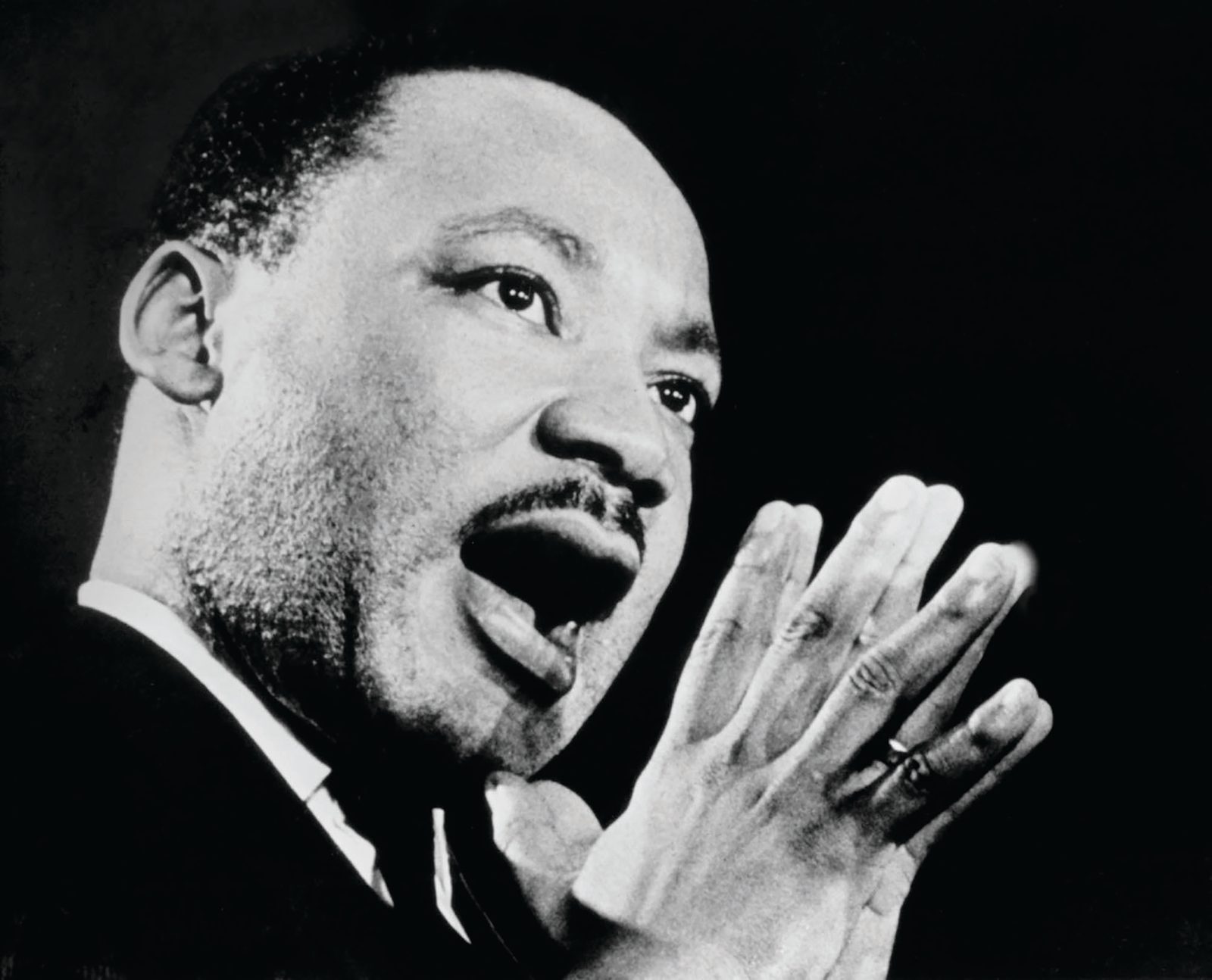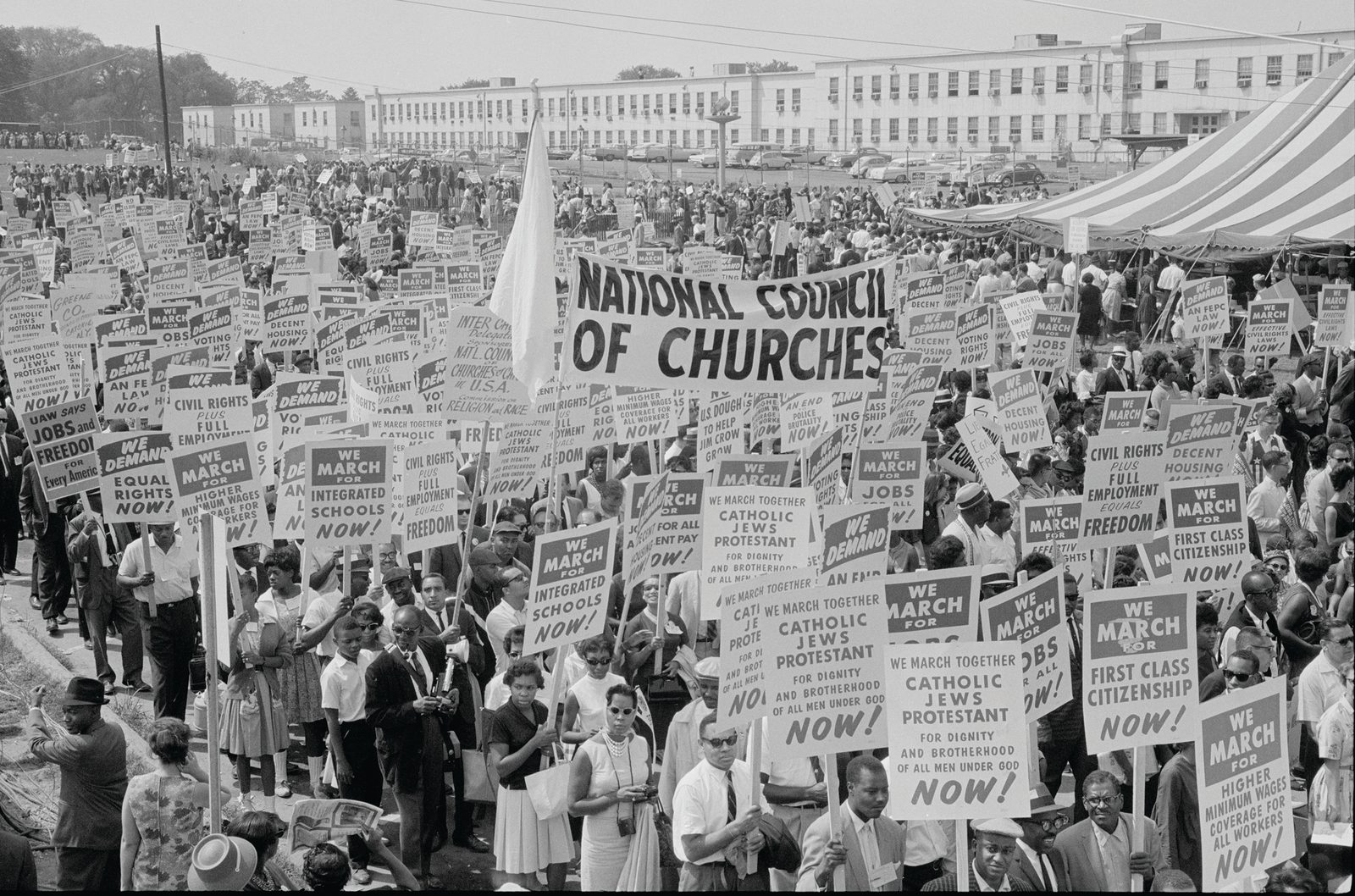Martin Luther King Day celebrations this year, like in prior years, will be commemorated through a range of events where recordings and readings of Dr. King’s speeches will be heard and documentaries and movies about his life will be viewed.
Fortunately, there is an abundance of resources that one can access to learn more about Dr. King and the Civil Rights Movement that he is centrally associated with from the late 1950’s until his death in 1968. Many of these resources also include stories about men, women and children who worked directly with Dr. King and marched alongside him.
Of course there are countless individuals who participated in the movement and were inspired by Dr. King’s leadership whose stories are unknown to us. Some of these individuals were living in the Jim Crow South and joined the movement in hopes of bringing an end to the discrimination and oppression they endured on a daily basis. Others joined in solidarity with the movement from Northern and Western parts of the country, outraged by the conditions and violence in many Southern communities that were broadcast on television and reported in the press nationwide for everyone to see and to read.
Many of these same men, women and children are with us today. Some of the children are now in their late 60’s and early 70’s and the adults are now in their 80’s, 90’s and even centenarians. Over the years, one of my dear friends has shared memories of this important time, connecting it to the struggles with racism we wrestle with today and placing it squarely within her Christian and Catholic beliefs and values.
This year in my celebration of MLK Day, I want to share my friend’s story, because she was there, walking with Dr. King and the thousands who attended the March on Washington in 1963. Hopefully, her story might move others to find out who among their relatives, friends, neighbors and parishioners were among the unknown who stood with Dr. King and supported the Civil Rights Movement of the 1960’s.

My friend is Susie, and she is in her early 80s. We are members of St. Anthony of Padua Catholic Church in the Brookland neighborhood of Washington, D.C. We became friends at the time my son and her granddaughter attended the parish school. Our friendship has grown over the years because of Susie’s wonderful example of faith, reminding everyone she meets to “Believe in God and to love everyone,” and for her special devotion to children.
Now retired, Susie enjoyed a 30-plus year career as a Bookmobile librarian for the District of Columbia and Montgomery County, Maryland. Her work took her to low income communities to serve families for whom access to libraries beyond the schools the children attended was limited or non-existent. This work became her vocation, a way to expand the world and inspire a love of reading for every child who visited Miss Susie when she brought the Bookmobile to their neighborhood.
A proud native Washingtonian, Susie was born at Freedman’s Hospital on the Howard University campus in Northwest Washington, D.C. in 1942. Always the librarian and teacher of Black history, she pointed out that the Freedman’s Hospital was founded in 1862 to serve the formerly enslaved community in the District of Columbia. Freedman’s Hospital became affiliated with Howard University’s College of Medicine in the late 1860’s to train African American physicians and would serve as the primary hospital for the District’s African American community.
Susie’s interest in the Civil Rights Movement blossomed in 1960 when she graduated from Western High School (now the Duke Ellington School for the Arts). After graduation, Susie began her freshman year at D.C. Teachers College (consolidated into the University of the District of Columbia in the 1970s), which was adjacent to Howard University. There she and friends from D.C. Teachers College and Howard University became involved with the movement. As she remembered, “Interestingly we had things in common, books, racism, and Dr. Martin Luther King. When we heard about the upcoming March on Washington (The March) we prepared ourselves to participate. Several of the Howard University students were always with me because – after all – I was from D.C.”
Like the parents of many young people determined to participate in The March, approval from her parents was mixed. Susie’s parents were from South Carolina and Georgia. They were part of the Great Migration of African Americans who left the Jim Crow South to find a better life in Northern cities and Washington, D. C. They had seen the violence perpetrated against African Americans in the South.
Susie noted that while her mother was thrilled with her activism and desire to be a part of The March and the movement, her father was not at all supportive of her participation. As Susie recalled, “first of all he questioned my mother about my hair (which was natural) we called it a “bush or Afro.” And he told my mother to do something about that. Of course she ignored him. I later found out that he was frightened for me, that I may go to jail or be injured.”
Susie understood a bit about her parents' experience growing up in the South from visits to her maternal grandmother’s home in Georgia during the summers. When she traveled by train with her grandmother, her mother would prepare their food for the trip because the segregation practices on the trains prohibited African Americans from eating in the dining cars. During one of her earliest visits to Georgia, Susie recalled asking her grandmother what was the meaning of the signs on water fountains, “For Colored Only”? She asked what the color of water from such a fountain was, only to have her grandmother to ask her to be quiet so no one else could hear her question.


On the day of The March, Susie and her friends gathered at Foggy Bottom to walk together to the Lincoln Memorial on what was a hot day in August. As they approached the Mall, they could hear gospel songs including “I’ve Been ‘Buked and I’ve Been Scorned,” sung by Mahalia Jackson and “He’s Got the Whole World in His Hands,” sung by Marian Anderson. There were thousands of people in attendance from everywhere, of all ages and backgrounds. There were many songs and many speakers, but she and her friends came to hear Dr. King and his “I Have a Dream” speech.
When asked what the most memorable moment of the day was for her, Susie said that it was when Dr. King spoke the words “Free at last! Free at last! Thank God Almighty, we are free at last!” She remembers repeating that phrase and the tears flowed from her eyes. They were joyful tears because she was hopeful that there would be change in America so that all Americans would be treated equally.
“It was the beginning of something hopeful, which was what The March was all about,” she said. Susie tears up today when she thinks about that day of hope for change.
I asked Susie to share how this experience influenced her life choices. She said being an activist for equal rights and social justice was important to her before The March because of what she knew and had seen visiting her grandmother in Georgia.
Susie became a librarian because of her love of books. During the 1960s there was an increase in literature about Black history, which was such a blessing to her. Susie emphasized we must never forget our roots. Susie shares her love for Black history with her granddaughter and many others.
She also believes communication between people from different backgrounds helps make a better world. She noted that as the communities she served in Montgomery County became increasingly Hispanic, she expanded her knowledge of Latino culture and language so that she could serve them more effectively and know them better.
Susie believes, sadly, the equality and justice Dr. King envisioned has not been realized. She has a “Black Lives Matter” sign but is not sure how it would be received if she displayed it in her window because of the prevalence of racism and the brokenness in our society. When I asked what she thought Dr. King might say to us today, she said, “I do not think he would emphasize the words ‘Free at last!’ He would probably acknowledge the progress made since The March in 1963, point out room for improvement, and the importance of accepting all people no matter what race or background.”
Veryl Miles serves as special assistant to the President of The Catholic University of America and is a professor at the University’s law school.










